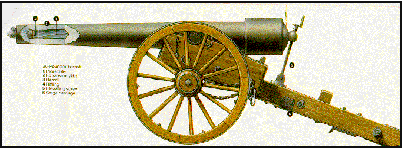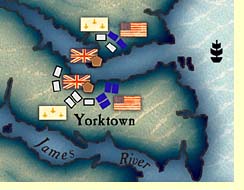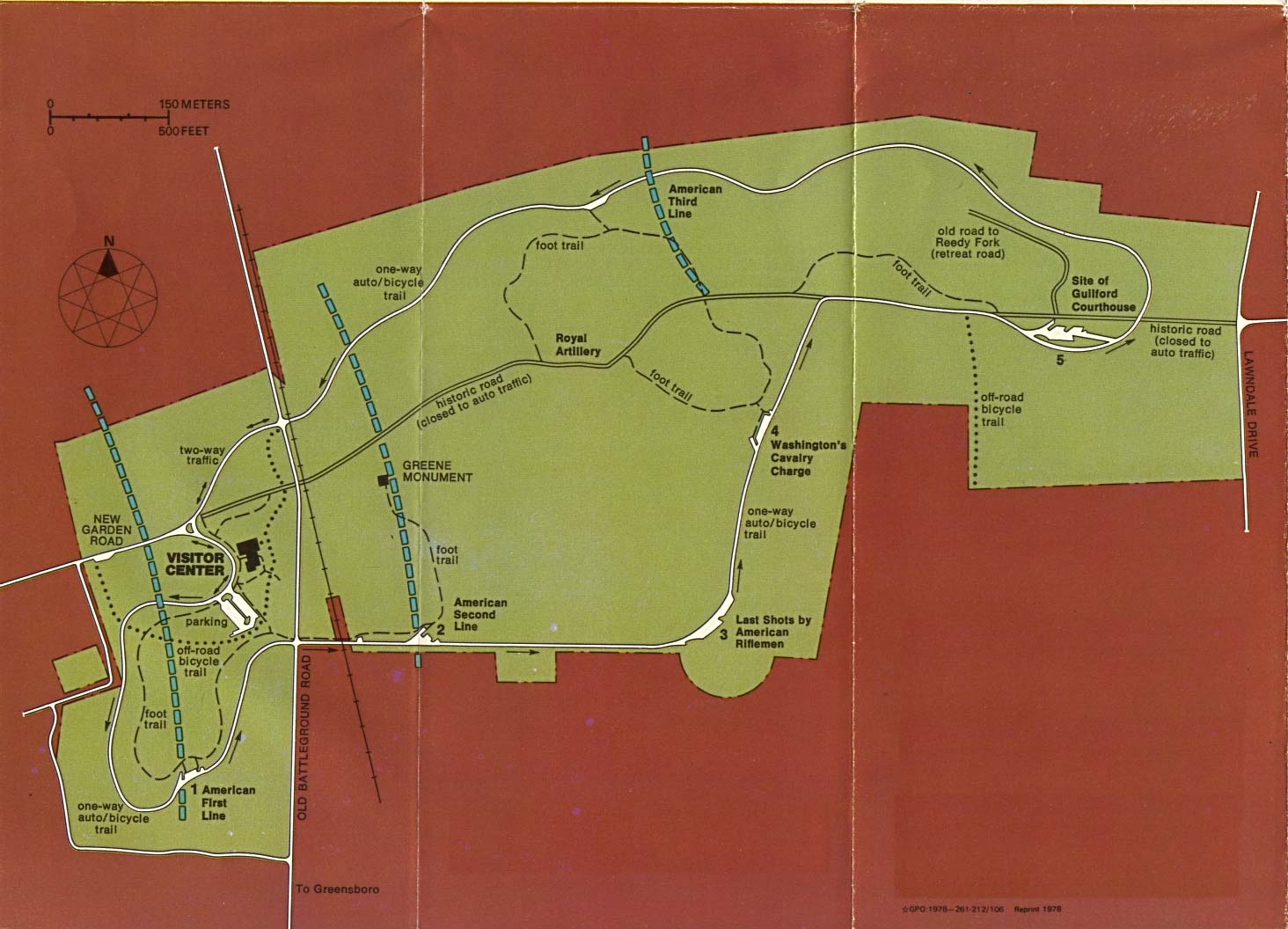1775 – 1783 Revolutionary War

Chronology of Events
Regular type= Crown victory. Bold type= Rebel victory.
Italic type= non-confrontational event or non-decisive battle.
Prelude to War |
||
1760 to 1775 |
1760 | King George III ascends to the throne of England. |
| 1763 | Treaty signed between England and France ending the French and Indian War. Canada and the continent east of the Mississippi River added to Great Britain’s growing empire. | |
| 1765 | Parliament passes The Stamp Act as a means to pay for British troops on the American frontier. Colonists violently protest the measure. | |
| 1766 | March 18. Stamp Act repealed, but on the same day parliament passes the Declaratory Act asserting its right to make laws binding on the colonies. | |
| 1768 | October. British troops arrive in Boston to enforce customs laws. | |
| 1770 | March. Four workers shot by British troops stationed in Boston. Patriots label the killings “The Boston Massacre.” | |
| 1773 | December. Massachusetts patriots dressed as Mohawk Indians protest the British Tea Act by dumping crates of tea into Boston Harbor. | |
| 1774 | January. The Privy Council reprimands Benjamin Franklin in London for leaking letters damaging to the Royal Governor of Massachusetts. September. First Continental Congress convenes in Philadelphia. | |
The War Begins |
||
1775 |
April 19 | Battles of Lexington & Concord Shots fired at Lexington and Concord. “Minute Men” force British troops back to Boston. |
| May 10 | Greene captures Ft. Ticonderoga | |
| June 17 | British take Breeds (Bunker) Hill | |
| July 3 | George Washington takes command | |
| Nov. 13 | Montgomery occupies Montreal | |
| Dec. 9 | Skirmish at Great Bridge, Virginia | |
| Dec. 31 | Americans lose attack on Quebec | |
1776 |
January | Thomas Paine’s Common Sense published. Becomes an instant best seller and pushes the colonies closer to independence. |
| Mar. 17 | British evacuate Boston | |
| June 21 | Siege of Charleston, South Carolina | |
| June 28 | Sullivan’s Island repels invasion | |
| July 4 | Thomas Jefferson’s Declaration of Independence ratified by the Congress. | |
| July | A huge British force arrives in New York harbor bent on crushing the rebellion. | |
| Aug. 27 | Continentals defeated at Long Island | |
| Sept. 16 | Battle of Harlem Heights, New York | |
| Oct. 28 | Battle of White Plains, New York | |
| Nov. 16 | British capture Fort Washington | |
| Nov. 20 | Fort Lee abandoned to British | |
| Dec. 26 | Washington’s victory at Trenton Washington crosses the Delaware River and captures a Hessian force at Trenton, New Jersey |
|
| December | In desperate need of financing and arms, Congress sends Benjamin Franklin to France to urge the French to ally with America. | |
1777 |
Jan. 3 | Battle of Princeton |
| July 5 | Continental Army evacuates Ticonderoga A British force led by John Burgoyne takes Fort Ticonderoga in a devastating loss to the Americans. The Marquis de Lafayette arrives in America. |
|
| Aug. 6 | Battle of Oriskany, New York | |
| Aug. 16 | Germans defeated at Bennington | |
| Sept. 11 | Washington’s Army is routed at Brandywine, Pennsylvania | |
| Sept. 19 | Burgoyne defeated at Freeman’s Farm, New York | |
| Sept. 21 | British surprise Continentals in a night attack near Paoli Tavern | |
| Sept. 26 | General Howe seizes Philadelphia | |
| Oct. 4 | Washington defeated at Germantown | |
| Oct. 7 | Burgoyne’s advance stopped at Bemis Heights | |
| Oct. 17 | Burgoyne surrenders at Saratoga | |
| Nov. 8 | British evacuate Ticonderoga | |
| Nov. 15 | Continentals evacuate Fort Mifflin | |
| Dec. 19 | Washington encamps at Valley Forge | |
1778 |
Feb. 6 | France joins the war effort by signing treaty of American alliance |
| June 28 | Battle of Monmouth | |
| July 4 | George Rogers Clark captures Kaskaskia | |
| Aug. 29 | Battle of Rhode Island | |
| Dec. 29 | British occupy Savanna, Georgia | |
1779 |
Feb. 24 | George Rogers Clark recaptures Vincennes |
| May 8 | Spain enters the war on the side of America | |
| July 15 | Continentals take Stony Point, | |
| Oct. 9 | French and Americans stopped at Savanna | |
1780 |
May 12 | Charleston, South Carolina finally taken after long siege |
| July 11 | French troops arrive in Newport, Rhode Island | |
| Aug. 16 | Americans defeated at {ln:Camden}, South Carolina | |
| Sept. 25 | Benedict Arnold defects to the British | |
| Oct. 7 | British defeated at {ln:Kings Mountain} | |
1781 |
Jan. 1 | The Pennsylvania line mutinies |
| Jan. 17 | Daniel Morgan defeats the British at (ln:Cowpens} | |
| Mar. 15 | Battle of {ln:Guilford Courthouse} | |
| April 25 | Greene pushed back at Hobkirk’s Hill | |
| July 29 | Loyalist victory at Deep River, North Carolina | |
| Sept. 5 | French fleet takes Chesapeake Bay | |
| Sept. .8 | British hold Eutaw Springs, S. Carolina | |
| Sept. 26 | {ln:Siege of Yorktown} begins | |
| Oct .19 | Cornwallis surrenders at Yorktown A miraculous convergence of American and French forces traps Lord Cornwallis at Yorktown, Virginia. He surrenders his British army. |
|
1782 |
June 4 | Crawford defeated at Sandusky |
| July 11 | Savannah evacuated by British | |
| Aug. 19 | Americans defeated at Blue Licks | |
| Nov. 30 | Preliminary peace treaty signed in Paris | |
| Dec. 14 | British evacuate Charleston | |
1783 |
April 3 | Loyalists and militia battle at Tuckertown, NJ |
| April 19 | Congress declares end of hostilities | |
| Sept. 3 | Final peace treaty signed in Paris | |
| Nov. 25 | British evacuate New York | |
| Dec. 23 | George Washington retires from command | |


